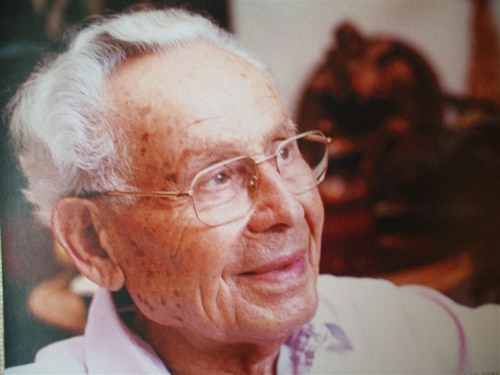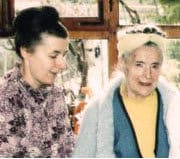Chapter 1 : 1898-1922The Stranger’s Daughter Chapter 2 : 1923-1939Wife and Mother Chapter 3 : 1940-1941World War II and Persecution Chapter 4 : 1942-1943A Mother’s Courage Chapter 5 : 1943-1945Taken Away! Chapter 6 : 1945-1979Return to Life
Chapter 1 : 1897 / 1914Hounded by poverty Chapter 2 : 1914 / 1922World War I, deportation…and Emma ! Chapter 3 : 1923 / 1930Adolphe and Emma weave their nest Chapter 4 : 1932 / 1938Two crucial decisions Chapter 5 : 1938 / 1941Faith under fire Chapter 6 : 1941
This memorial to Max Liebster, honorary citizen of Reichenbach, should remind us of all who have suffered unjustly under the National Socialist regime, and stimulate us to think about our own values and goals. Memorial to Max Liebster in Reichenbach
The Danner Family The Danner family lived at No. 3, Rue des Seigneur in Lower Yutz, Moselle, France. The father, Jacques Danner (nicknamed Jacob) was born on March 22, 1898 in Rohrbach and worked as a laborer at the blast furnaces. He married Augustine Rosine Hantz, born on February 25,
His wife, his cousin Alfred and his family,the local congregation of Jehovah’s Witnessesand the Arnold Liebster Foundation announce with deep sadness that MAX LIEBSTER was gathered to his ancestors on Wednesday, May 28, 2008. Throughout his life, struggling for real life for 93 years, he never doubted the messianic prophecies.
“Home to the Reich” was the motto in Alsace in 1940. This meant that all National Socialist laws were also applied to Alsace. A year later, in September 1941 – I was 11 years old at the time – the doorbell rang. Mutti and I were expecting father back from
Max Liebster was born to a Jewish family on February 15, 1915, in the small town of Reichenbach (Odenwald), Germany. Max, his parents, Bernhard and Babette, and his two sisters, Ida and Hanna, struggled to live on Bernhard’s work as a cobbler. Following his return from service in the German
During the winter of 1944-45, Allied troops crossed the Rhine River. All the dangerous prisoners had to be “evacuated” to other camps in the German interior. Emma would be sent to Ravensbrück. But there was no train line to there from Gaggenau. A few SS guards forced Emma, along with








